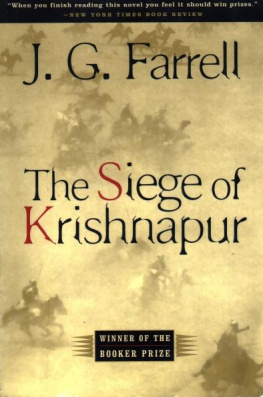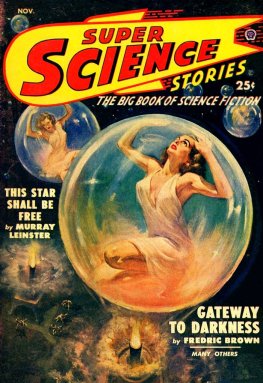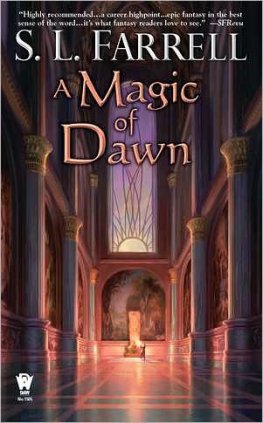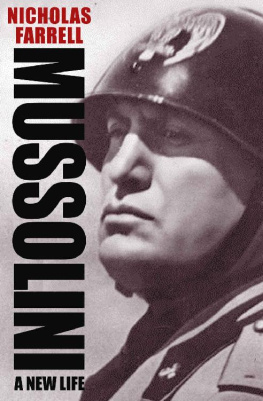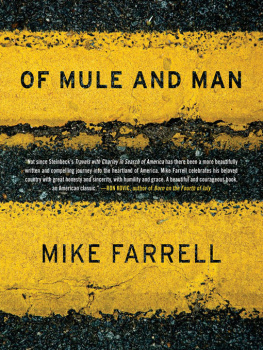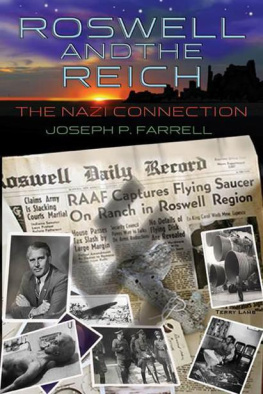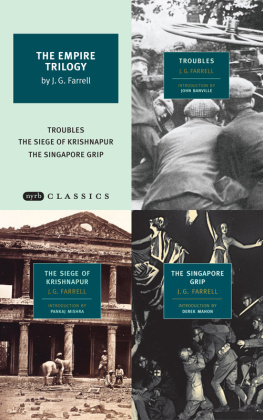J.G. Farrell - The Siege of Krishnapur
Here you can read online J.G. Farrell - The Siege of Krishnapur full text of the book (entire story) in english for free. Download pdf and epub, get meaning, cover and reviews about this ebook. genre: Detective and thriller. Description of the work, (preface) as well as reviews are available. Best literature library LitArk.com created for fans of good reading and offers a wide selection of genres:
Romance novel
Science fiction
Adventure
Detective
Science
History
Home and family
Prose
Art
Politics
Computer
Non-fiction
Religion
Business
Children
Humor
Choose a favorite category and find really read worthwhile books. Enjoy immersion in the world of imagination, feel the emotions of the characters or learn something new for yourself, make an fascinating discovery.
- Book:The Siege of Krishnapur
- Author:
- Genre:
- Rating:3 / 5
- Favourites:Add to favourites
- Your mark:
- 60
- 1
- 2
- 3
- 4
- 5
The Siege of Krishnapur: summary, description and annotation
We offer to read an annotation, description, summary or preface (depends on what the author of the book "The Siege of Krishnapur" wrote himself). If you haven't found the necessary information about the book — write in the comments, we will try to find it.
The Siege of Krishnapur — read online for free the complete book (whole text) full work
Below is the text of the book, divided by pages. System saving the place of the last page read, allows you to conveniently read the book "The Siege of Krishnapur" online for free, without having to search again every time where you left off. Put a bookmark, and you can go to the page where you finished reading at any time.
Font size:
Interval:
Bookmark:
Picture a map of India asbig as a tennis court with two or three hedgehogs crawling over it each hedgehog might represent one of the dust-storms which during thesummer wander aimlessly here and there over the Indian plains, whirlingcountless tons of dust into the atmosphere as they go until themonsoon rolls in and squashes them flat. Because there was a duststormin the vicinity it seemed, and was, much darker than usual. Thisdarkness could not help but be associated with the terrible massacre atCaptainganj; even the Collector, who had gone up on to the roof to bealone and had found the stars blotted out, caught himself thinking so.
Harry and Fleury had spentthe late afternoon riding about the country warning indigo planters tocome into the Residency. When they returned to the cantonment for thesecond time they found their way obstructed by abandoned carriages andhackeries; such a panic had taken place that the road to the Residencyhad become jammed with vehicles and people had been obliged to continueon foot, bringing what possessions they could with them on having themcarried by coolies on their heads.
In the darkness of theResidency drive, which was lit only by a flaring torch on the portico,the silhouettes of men and horses thrashed and wrestled with boxes,bundles, and mysterious unnameable objects which they clung to withdesperate tenacity; it was as if they were struggling up to theirwaists through a swamp of pitch towards the solitary, dancing flame ofthe Residency. Curiously enough, they struggled in almost total silenceexcept for laboured breathing and an occasional strained whisper.
Those who managed to winthrough this slough of darkness and despair found themselves in thehall, which more resembled purgatory than Heaven, and was crowded withladies and children who sat huddled on trunks and boxes. They staredabout them with that wide-eyed, alert look which people have duringemergencies but which is really the result of shock; if you spoke toone of these alert-looking ladies she would have difficultyunderstanding you.
Almost five hours hadpassed since the General had dived bleeding from his horse, therebyconceding the weakness of his arguments. During this time the Collectorhad hardly for a moment stopped giving orders. At first he had found itdifficult because the refugees were stunned; even when he shouted noone paid any attention to him. So he had changed his tactics: he hadassembled all the young lieutenants and ensigns who had managed toescape unhurt from Captainganj (for once the senior officers had bornethe brunt of the slaughter) together with half a dozen civilianofficials. With this retinue at his heels he had stalked about theResidency doing his best to impose order on chaos, organizing askeleton defence for the mud walls, allocating rooms for the womenand children, sending out panties of loyal Sikhs to patrol thecantonment. All these orders he murmured to the dazed young men aroundhim and, curiously enough, the quieter his tone, the more greedily hisorders were swallowed and the more hastily executed. Soon he was barelywhispering his commands.
Now, on the roof, all wasquiet except for that laboured breathing, the crunching of gravel andthe creaking of wheels that filtered up from the struggling mass in thedarkness below. The Collector cursed them silently. Why had they tobring their useless possessions? Already the rooms and corridors of theResidency were shrinking with the deposit of furniture, boxes, and brica brac. He knew now that he should have forbidden everything exceptfood and weapons but in their place, ah, could he have broughthimself to leave behind his statues, his paintings, his inventions?
On his way to the roof hehad looked into his bedroom. The General lay in a coma in thedressing-room; his whistling breath could be heard through the halfopen door and the Collector could just glimpse the nimbus of mosquitonet which enveloped him. Miriam and Louise Dunstaple were watchingtogether beside his cot now that Dr Dunstaple had gone to aid Dr McNabin treating the other wounded who had escaped from Captainganj.
Presently the stars began to appear and the night became brighten. Some time later, the Magistrate joined him on the roof.
Thank heavens they got away with some cannons, Tom, said the Collector.
The Magistrate made noreply except to sigh and peer over the balustrade at the seething massof men and possessions below. It was evident that he did not think thatcannons would make any difference. Nevertheless, enough men had escapedfrom Captainganj to make a useful force. Two dozen British officers ofnative regiments, twice that number of English private soldiers, andthe majority of the Sikh cavalry, numbering over eighty men; add tothat at least a hundred European civilians, either Company officials orplanters and, finally, a large but as yet undetermined number ofEurasians. Perhaps there would also be a handful of loyal sepoys. Butall the same the Magistrate was right: against the vast numbers thatthe rebel sepoys were capable of marshalling the Residency force wasinsignificant.
Nowthe moon rose and other gentlemen began to appear on the roof. Amongthe first was Dr Dunstaple who seemed in surprisingly good spirits andwas anxious to tell the Collector an amusing story about Dr McNab. Anhour or two earlier, while the two doctors had been working together tosew up a young ensign, McNab had suddenly asked him if he had heard ofthe native way to staunch wounds a way which he was, he said, eagerto try out for himself. And whats that, McNab? says I. Itsthis, says he and here, although McNab had barely a trace ofScottish accent, Dr Dunstaple set himself to imitate him in anexaggerated and amusing way. Hae ye no hairrd o burtunga ants,Dunstaple? As a matter of fact, McNab, says I, I cannot say that Ihave ever heard burtunga ants mentioned in the entire course of myexistence. Och, then, lesten to this, laddie, says he. It seems thatthe little beggars have large and powerful jaws. What you have to do,he tells me, is to press together the lips of the wound and place theants on it at intervals. They bite immediately. The necks are thensnipped off and the bodies fall to the ground leaving the edges of thewound firmly held by the heads and jaws. Och, Dunstaple, I hae foondme a naist o the wee baisties and I shall see for maeself ere long.And Dr Dunstaple laughed heartily at the thought and repeated: Hae yeno hairrd o burtunga ants, Dunstaple ?
When Harry Dunstaple andFleury came up on to the roof the Doctor, failing to notice thatneither the Collector nor the Magistrate were enjoying it, insisted onrepeating the anecdote about McNab, adding that all the time EnsignSmith had been listening with his face as grey as porridge, expectingMcNab to produce his ants then and there. It was something for Fleuryto put in his book about Progress, he chuckled the strides thatmedicine was making in India.
By this time Fleury andHarry, though each still considered himself privately to have nothingin common with the other, had become firm friends. It so happened thatthey had had an adventure together; they had had to ride all the wayback to Krishnapur unarmed through mutinous countryside and then theCollector had sent them out again to warn indigo farmers and at onepoint they had heard what had sounded mighty like a musket shot which,although not very near, might or might not have been fired in their direction but, they decided, probably hadbeen. Harry clung to this adventure, such as it was, all the moretenaciously when he found that because of his sprained wrist he hadmissed an adventure at Captainganj.
Those of his peers who hadescaped with life and limb from the Captainganj parade ground did notseem to be thinking of it as an adventure, those who had managed toescape unhurt were now looking tired and shocked. And they seemed to behaving trouble telling Harry what it had been like. Each of them simplyhad two or three terrible scenes printed on his mind: an Englishwomantrying to say something to him with her throat cut, or a comradespinning down into a whirl-pool of hacking sepoys, something of thatsort. To make things worse, one kept finding oneself about to saysomething to a friend who was not there to hear it any more. It washard to make any sense out of what had happened, and after a while theygave up trying. Of the score of subalterns who had managed to escape,the majority had never seen a dead person before a dead Englishperson, anyway one occasionally bumped into a dead native here andthere but that was not quite the same. Strangely enough, they listenedquite enviously to Harry talking about the musket shot which hadalmost definitely been fined at himself and Fleury. They wished theyhad had an adventure too, instead of their involuntary glimpse of theabattoir.
Font size:
Interval:
Bookmark:
Similar books «The Siege of Krishnapur»
Look at similar books to The Siege of Krishnapur. We have selected literature similar in name and meaning in the hope of providing readers with more options to find new, interesting, not yet read works.
Discussion, reviews of the book The Siege of Krishnapur and just readers' own opinions. Leave your comments, write what you think about the work, its meaning or the main characters. Specify what exactly you liked and what you didn't like, and why you think so.

